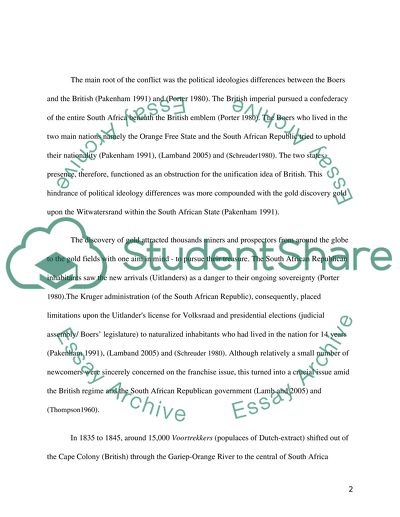Cite this document
(“Did the British win the Boer War only to lose the peace Essay”, n.d.)
Retrieved from https://studentshare.org/history/1478992-did-the-british-win-the-boer-war-only-to-lose-the
Retrieved from https://studentshare.org/history/1478992-did-the-british-win-the-boer-war-only-to-lose-the
(Did the British Win the Boer War Only to Lose the Peace Essay)
https://studentshare.org/history/1478992-did-the-british-win-the-boer-war-only-to-lose-the.
https://studentshare.org/history/1478992-did-the-british-win-the-boer-war-only-to-lose-the.
“Did the British Win the Boer War Only to Lose the Peace Essay”, n.d. https://studentshare.org/history/1478992-did-the-british-win-the-boer-war-only-to-lose-the.


